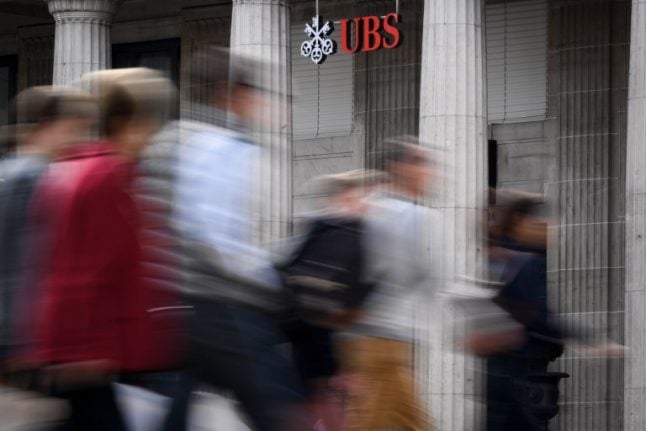Although Grübel said he was resigning to take responsibility for a rogue trading scandal that lost his bank $2.3 billion (€1.7 billion), “previously he said he would not resign” because of the fraud, Peter Thorne of Swiss brokerage Helvea told AFP.
Instead, Thorne said, Grübel’s departure was linked to his disagreements with the bank’s board, which has seemed interested in reducing the size of the group’s investment banking unit.
Grübel seemed “reluctant” to reduce the size of the unit, Thorne said.
Following Grübel’s announcement, UBS chairman Kaspar Villiger said the bank’s investment division, which was responsible for heavy losses during the US subprime mortgage crisis and accused of tax evasion, “will be less complex, carry less risk and use less capital.”
It will now be up to his successor, interim CEO Sergio Ermotti, chairman and CEO of UBS Group Europe, Middle East and Africa, to carry on.
Dominique Biedermann, the director of the Ethos Foundation of institutional investors, told AFP that although he would not pronounce himself on the causes of Grübel’s departure, “the only thing I know for sure, is that Grübel was pushing for investment banking.”
“And now UBS questions whether it wants to reduce the role of investment banking,” he said.
Biedermann, whose foundation manages pension fund invstments, said that in the past six or seven years UBS’ investment banking services had “cost more than it brought in”, which explained the board’s desire to lessen its impact on the bank, although it still had not clearly explained its its new position.
Analysts at the Royal Bank of Scotland, however, said that there was unlikely to be a major modification of the UBS’ investment banking division until at a permanent CEO was chosen.
“The eagerly expected strategic review of the investment bank could be delayed,” it said in a note to investors.
“We find it hard to see how such a review could be concluded without the possibility for the new CEO to shape the outcome,” Royal Bank of Scotland said.
It however also welcomed a reduced investment banking sector, saying the bank would remain attractive to investors with a “materially smaller, much less capital intensive investment bank.”
But the Swiss Banker’s Association, without referring to a specific bank, told AFP that universal banking was an important “pillar” for Swiss banks.
“The model of universal banking has all of a bank’s activities under one roof,” Sindy Schmiegel Werner, a spokeswoman at the Swiss Bankers Association said.
“That is the case for Switzerland’s two biggest banks,” she said, adding that it was “important for the big banks to base all their activities on a variety of pillars — from private banking to asset management to investment banking.”
“There is such a great advantage for customers who can benefit from a single source for their needs,” she added.
Nevertheless, analysts remained convinced of the solidity of UBS.
“In an environment where investors remain highly concerned about eurozone stability, wholesale funding and capital adequacy, we believe that UBS’s Swiss domicile and strong balance sheet will continue to make the shares an attractive relative investment,” Nomura said in a note to its investors.
Standard and Poor’s said the bank’s long term debt grade of A+ on watch “with negative implications” remained unaffected by Grübel’s resignations.
“A reshaping of the investment bank into a lower-risk business with more-reliable performance would likely support the current ratings,” it said.
UBS’s share price, which had fallen slightly at the market’s opening, was up 2 percent in the afternoon and trading at 10.32 francs per share.


 Please whitelist us to continue reading.
Please whitelist us to continue reading.
Member comments